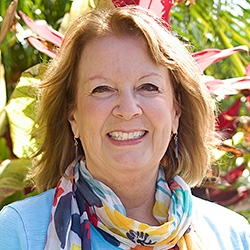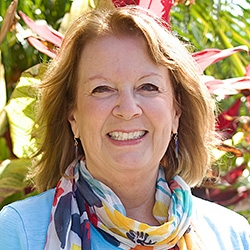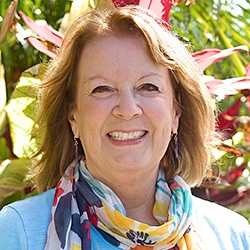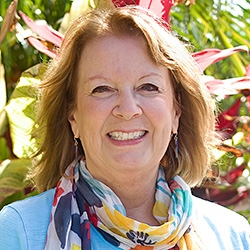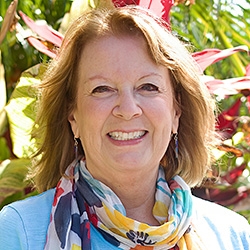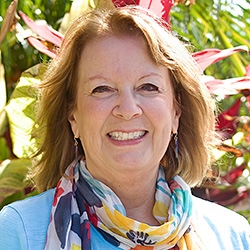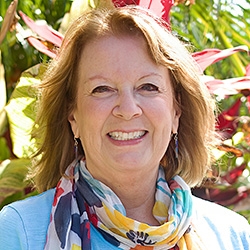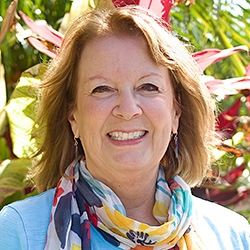
Search Results: hurt
-
Tolerating reactivity, name-calling, blaming, guilt-tripping, or stonewalling can lead to resentment and hurt. Plus, the more you stay in a reactive dynamic, the more you are likely to reinforce the pattern. Setting life-serving boundaries around reactivity is about letting another know that you aren’t going to participate in that kinds of dynamics. This means knowing what helps with handling difficulties and asking for that.
-
When someone expresses upset about our actions, and we focus on our intention being seen and understood (e.g. "I didn’t mean to hurt you”) it doesn't support the speaker in being heard more deeply with care. Here we'll explore this dynamic in a way that supports more clarity and the possibility of greater personal liberation. Read on for more.
-
While someone is upset or hurt they may "listen" to us to gather evidence for a rebuttal, to assert or validate a preconceived idea, and so on. When in this "predatory listening" mode, the "listener's" needs overshadow relational values like understanding, connection, or mutuality. In response to this we can consider our purpose, affirm any positive intent or need in what they say, and ask direct, honest questions.
-
Anger is neither good nor bad. When you don't foresee it or you haven't cultivated a relationship to anger, you may behave from it and hurt yourself and others. There are three reasons anger may rise: primitive anger, resistance, and lack of resources. For practicing with these last two types of anger, we'll look at four practices: cultivate awareness, pause and expand, self-care and planning, and allow grief.
-
When we don't like what someone is saying to us, sometimes people encourage us to hear their needs, and "not take it personally" -- and we're inclined to agree. Could "not taking it personally" close our hearts and awareness to others, life and ourselves? Rachelle Lamb invites us to take a closer look at what it's like when we attend to the situation from our hearts, and skillfully reflect upon our actions with tenderness.
-
Trainer Tip: Discovering the unmet needs is only a starting point. The other part is to understand what it will take to meet that need, and make a request that will accomplish this. This way, we can resolve situations before they escalate. Everyone benefits when we are clear about what we would like.
-
Trainer Tip: Most of us have been conditioned to withhold the expression of our feelings to some degree. Mary offers a tip to de-stigmatize our feelings and relax into our humanness.
-
Trainer Tip: When someone acts in baffling ways we can either wonder about what’s going on with the other person, create our own stories about it (blame, resent, make assumptions), or inform ourselves by asking. This is an opportunity to learn something new.
-
Trainer Tip: Be aware of opportunities today to choose empathizing over arguing with someone who is angry, and notice how it affects your ability to resolve the situation. Read on for more.
-
Trainer tip: The phrase “tragic expressions of unmet needs” is used to convey how often we do things that aren’t likely to meet our needs. It’s not bad, it’s tragic -- because it won’t help us meet our needs. Acknowledging this, we can then consider a different approach that's more likely to lead to satisfying results. Read on for three examples of where this may apply in your life.
-
Trainer tip: Beware that your expression of feelings helps you own how you feel, rather than blaming the other person for doing something you see as wrong. Expressing your feelings helps the other person know how deeply this issue affects you. Plus it can bring more clarity and connection to all parties. Read on for more.
-
Trainer Tip: In challenging situations, we can be peaceful and clear when we are able to connect to what we value most, and to act in harmony with those values. For example, if a coworker does something you don't like, instead of gossiping about their undesirable behaviors, you can talk to them about how both of you feel regarding what happened, and focus on the needs you're both trying to meet at work.
-
Ask the Trainer: "I understand that I'm not responsible for someone else's feelings, but my girlfriend doesn't. Do you have ideas for how I could get her to understand this concept?"
-
Listen to Roxy Manning explore the barriers to speaking authentically as powerful voices for change, and practice these needed conversations about the ongoing violence in the streets of America.
-
Trainer tip: Read on for the three stages of emotional maturity. In the third stage, we integrate the first two stages. We come to realize that everyone is responsible for their own feelings, but we also recognize our role if we do something that stimulates pain in another person. We also start to value the needs of everyone, rather than just one party's needs over the other.
-
Trainer Tip: When someone is in pain and lashing out, might be a time when empathy is needed most. Empathizing in these moments can be very challenging. Mary offers a few words of ecouragement for these situations.
-
For many, spending time with relatives over the holidays may be challenging. In addition to the love and care we may feel, family gatherings can bring up old hurts or expose painful differences. How many family meals have been marred by tense silence or devolved into harsh argument?
-
Trainer Tip: The better you connect with your child’s needs, the more you will defuse the power struggle. If he wants to behave in a way you don't like, start by understanding what's going on with him by making empathic guesses. Doing this out loud can expand your child’s emotional vocabulary and show that his needs matter to you, and build his trust. Once you learn what's going on with him, create a strategy that values both your needs.
-
Ask the Trainer: "I have noticed that sometimes when I am in a story-telling mood I am usually trying to prove that I am right and once I connect with a need the urge to give all the information goes away."
-
Speaking the truth creates congruence, which creates trust, facilitating understanding and cooperation. Without truth there is no growth in our relationships and community. If this is true, then what keeps us from speaking our truth?






